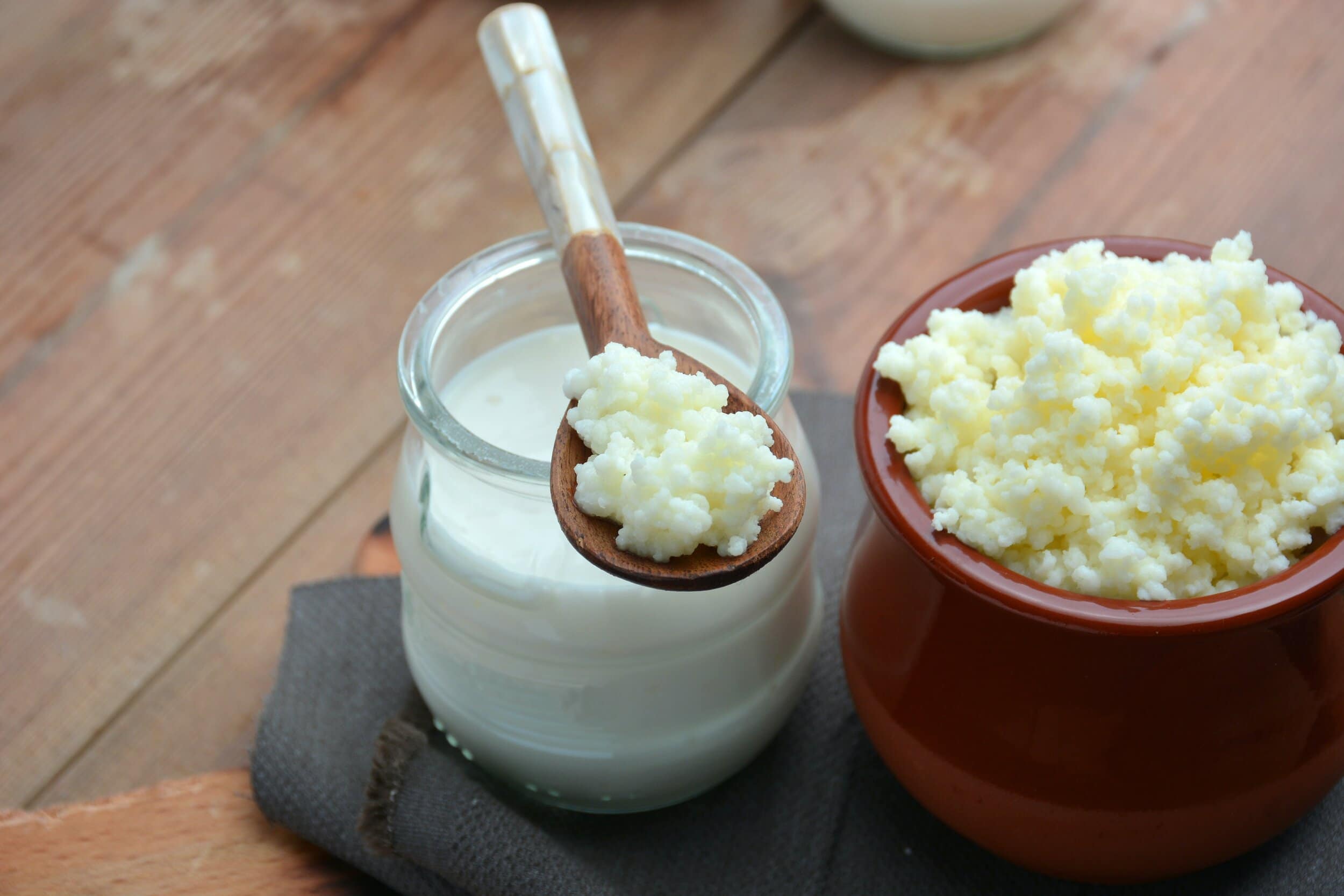Forget kale and nut butters: fermented foods are the one big health trend we’ll all be spooning into our diet this year, and the one that’s causing a particular buzz is kefir – a cultured milk drink with a slightly sour taste and a whole host of potential health benefits.
Hailing from the northern Caucasus Mountains, Kefir dates back many centuries to when shepherds in the mountainous region would carry milk stored in leather pouches, which would ferment into fizzy sour yoghurt.
These days, the trendy drink is made in a slightly more sanitary way – by adding kefir grains to cow’s milk in a jar and leaving it to ferment at room temperature for around 24 hours. Kefir grains are not actually traditional grains but are small jelly-like beads containing a variety of bacteria and yeasts.
After the fermentation process, the grains are strained and added to a fresh jar of milk to be reused for a new batch. The strained kefir, meanwhile, is ready to be bottled and drunk.
The reason kefir has recently become so popular is down to the ‘good bacteria’ it contains. Much like yogurt, studies have found that the microorganisms in kefir can help with gastrointestinal issues.
Kefir grains contain around 30 strains of beneficial bacteria, a major strain being lactobacillus – or lactic acid bacteria (LAB).
One study found that Lactobacillus kefiri, a LAB unique to kefir, can stop the growth of harmful bacteria such as salmonella, h-pylori and e-coli.
Some people also find that kefir improves their digestion, as the probiotic content can help to restore balance in the gut. However, those with IBS are advised to consult with a GP before trying it as it can make symptoms worse.
Traditional kefir made from cow’s milk is also a good source of dietary calcium and vitamin K too, which are both important for bone health.
Inflammation is involved in a number of issues ranging from the bowels to the joints. Some studies have found that probiotics like kefir can have an anti-inflammatory effect, although researchers have concluded that more research needs to be done into the specific effects of the kefir itself.
So where can you try it? Kefir used to be the sort of thing you’d have to hunt down in a health food shop, but it’s going mainstream as people are waking up to the potential health benefits.
You can now pick it up in plenty of high street supermarkets like Waitrose and Sainsbury’s. In fact, Marks and Spencer have just announced they’ll be stocking a range of grab-and-go kefir products in department stores nationwide, including a regular kefir drink, £2.50 for 500ml, and a cherry flavoured kefir drink, £2.50 for 500ml.
For those who are not used to probiotics, it’s wise to start with a small amount and see how it sits with your stomach, as some people find that it can cause bloating, constipation or diarrhoea.
Medical professionals advise that if you have a compromised immune system, you should always speak to your doctor before taking any probiotics.
